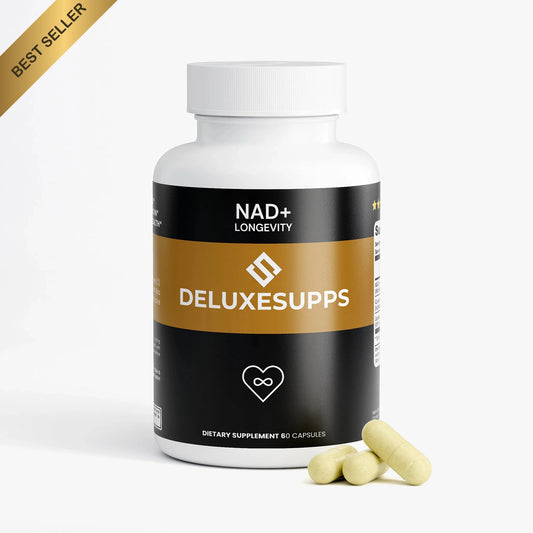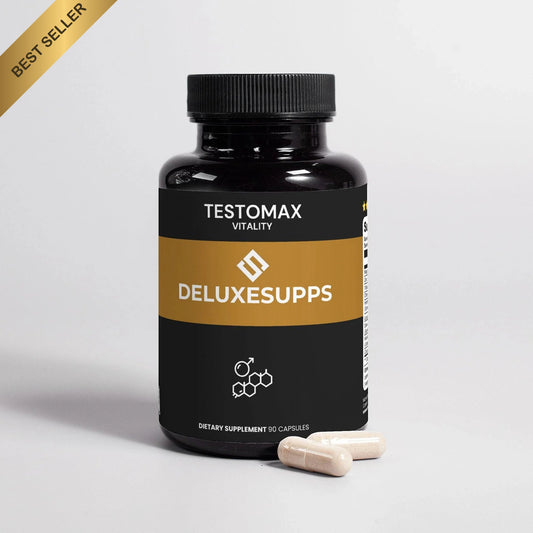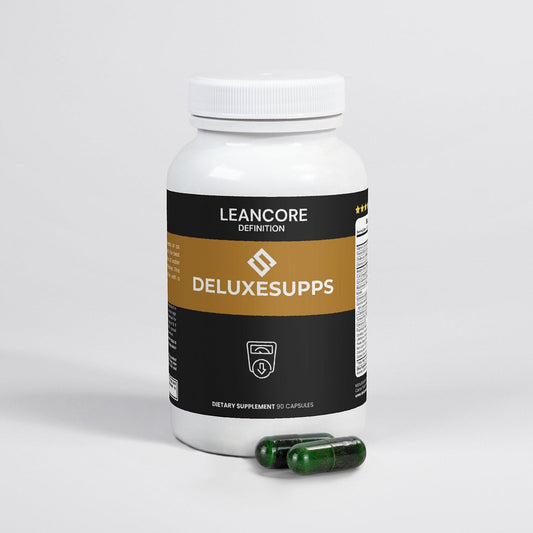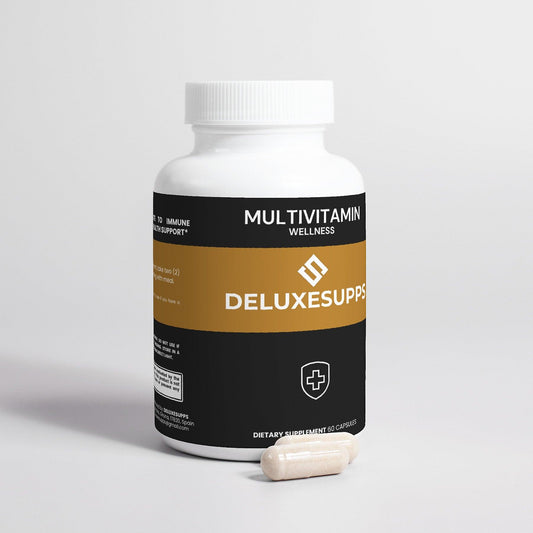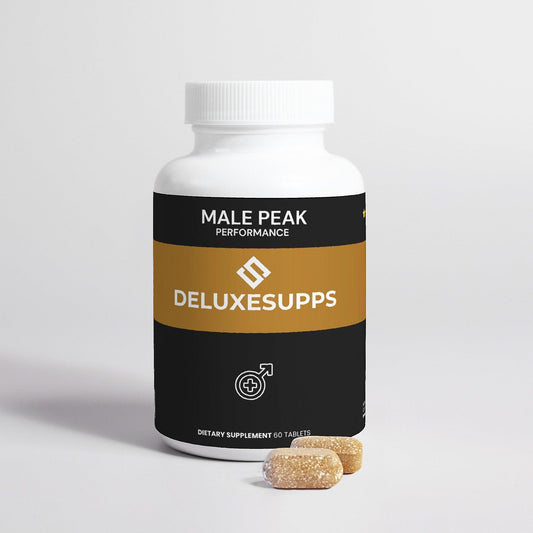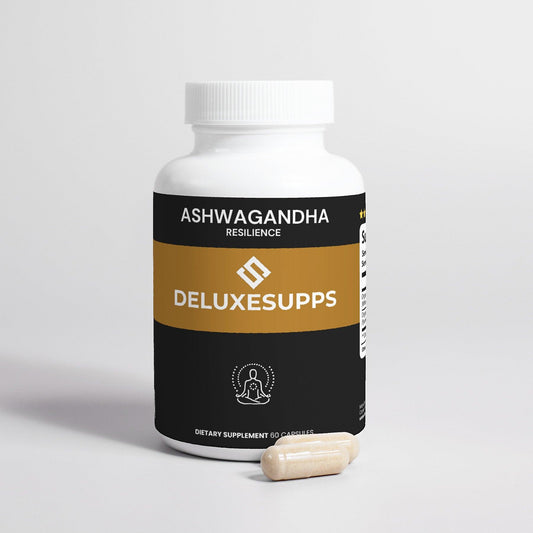
What Is CoQ10?
Coenzyme Q10, more commonly known as CoQ10, is a compound that plays a vital role in producing energy within our cells. Found naturally in the body and in various foods, CoQ10 is often supplemented for its numerous health benefits, especially for supporting cardiovascular health and enhancing daily energy levels. In this article, we’ll explore the science behind CoQ10, its benefits for heart health, and why it’s an increasingly popular daily supplement for those looking to support energy production and cellular vitality.
CoQ10 is a fat-soluble compound primarily located in the mitochondria—the powerhouses of our cells. It plays an essential role in the electron transport chain, a process crucial for generating adenosine triphosphate (ATP), which is the body’s main energy currency.
While our bodies produce CoQ10 naturally, levels tend to decline with age, stress, certain medications (such as statins), and chronic disease. This reduction can impact energy production and cellular function, potentially leading to symptoms such as fatigue and cardiovascular stress.
The Link Between CoQ10 and Heart Health
1. Supports Cellular Energy in the Heart
The heart is an energy-demanding organ, constantly pumping blood throughout the body. CoQ10 provides the energy required for this critical task. Low levels of CoQ10 have been observed in individuals with heart disease, which has prompted numerous studies into its potential cardiovascular benefits.
A review published in BioFactors (2015) concluded that CoQ10 supplementation improved heart function in patients with chronic heart failure by enhancing mitochondrial energy production and reducing oxidative stress [source].
2. Improves Symptoms of Heart Failure
Clinical trials have shown that CoQ10 may improve symptoms in patients with congestive heart failure (CHF). The Q-SYMBIO study, a randomized, double-blind, placebo-controlled trial, found that long-term CoQ10 supplementation led to a reduction in major adverse cardiovascular events and improved survival in heart failure patients [source].
3. Reduces Blood Pressure
CoQ10 has also shown modest benefits in lowering blood pressure. A meta-analysis published in the Journal of Human Hypertension (2007) found that CoQ10 supplementation significantly reduced both systolic and diastolic blood pressure in hypertensive patients [source].
4. Antioxidant Protection for Cardiovascular Health
Beyond energy production, CoQ10 functions as a potent antioxidant. It neutralizes harmful free radicals that can damage blood vessels and contribute to atherosclerosis. By reducing oxidative stress, CoQ10 helps protect the integrity of the cardiovascular system.
Daily Energy and Cellular Vitality
1. Combats Fatigue and Low Energy
Many individuals turn to CoQ10 to fight daily fatigue. Since it plays a key role in mitochondrial ATP production, CoQ10 supplementation can enhance overall energy availability, especially in individuals experiencing energy deficits due to age, stress, or chronic illness.
A study in Mitochondrion (2014) found that CoQ10 supplementation improved fatigue and physical performance in individuals with low energy levels [source].
2. Exercise Performance and Recovery
Athletes and active individuals may also benefit from CoQ10. It has been shown to reduce markers of oxidative stress during intense physical activity and to improve recovery times. This makes it an excellent adjunct for those engaged in regular fitness routines.
3. Mental Clarity and Brain Function
Since the brain is also energy-intensive, CoQ10 supports cognitive function by improving mitochondrial efficiency and reducing oxidative damage. This may help maintain mental clarity, focus, and even mood regulation.
Who Should Consider Taking CoQ10?
CoQ10 supplementation may be particularly beneficial for:
- Individuals over 40 (due to natural decline in production)
- Those taking statins, which can lower CoQ10 levels
- People with heart conditions or high blood pressure
- Those with chronic fatigue or low energy
- Individuals recovering from illness or surgery
- Athletes seeking performance and recovery support
Recommended Dosage and Forms
CoQ10 is available in two primary forms:
- Ubiquinone: The oxidized form, historically more common and cost-effective
- Ubiquinol: The reduced, active form, typically better absorbed by the body
While both forms are effective, ubiquinol is often preferred for older adults or those with absorption concerns.
Typical daily dosages range from 100 mg to 300 mg, depending on individual needs and health conditions. Always consult with a healthcare provider before beginning any new supplement regimen.
Safety and Side Effects
CoQ10 is generally considered safe with minimal side effects. Some individuals may experience mild gastrointestinal symptoms such as nausea, diarrhea, or abdominal discomfort. Taking CoQ10 with food can improve absorption and reduce the likelihood of side effects.
Choosing a High-Quality Supplement
To ensure optimal absorption and efficacy, it's important to choose a high-quality CoQ10 supplement. DeluxeSupps Coenzyme Q10 offers a professionally formulated option designed to support both heart function and energy levels. Manufactured under stringent quality standards, it contains bioavailable CoQ10 to help maximize cellular support.
Final Thoughts: The Takeaway on CoQ10
CoQ10 plays a foundational role in energy metabolism and heart function. Its benefits range from improved cardiovascular performance to enhanced daily energy and cognitive clarity. With a solid body of scientific research backing its efficacy and safety, CoQ10 is a compelling addition to any wellness routine—especially for those looking to support their heart health naturally.
Incorporating CoQ10 into your daily supplement stack may not only support longevity and vitality but also improve your quality of life in measurable ways.
References:
- Mortensen, S. A., et al. (2014). "The effect of Coenzyme Q10 on morbidity and mortality in chronic heart failure: results from Q-SYMBIO." JACC Heart Fail, 2(6), 641–649. PubMed
- Rosenfeldt, F., et al. (2007). "Coenzyme Q10 in the treatment of hypertension: a meta-analysis of the clinical trials." J Hum Hypertens, 21(4), 297–306. PubMed
- Mizuno, K., et al. (2014). "Effects of CoQ10 on fatigue and physical performance in patients with chronic fatigue syndrome." Mitochondrion, 17, 1–6. PubMed
- Littarru, G. P., & Tiano, L. (2010). "Clinical aspects of Coenzyme Q10: an update." Nutrition, 26(3), 250–254. PubMed
- Bhagavan, H. N., & Chopra, R. K. (2006). "Coenzyme Q10: absorption, tissue uptake, metabolism and pharmacokinetics." Free Radic Res, 40(5), 445–453. PubMed
